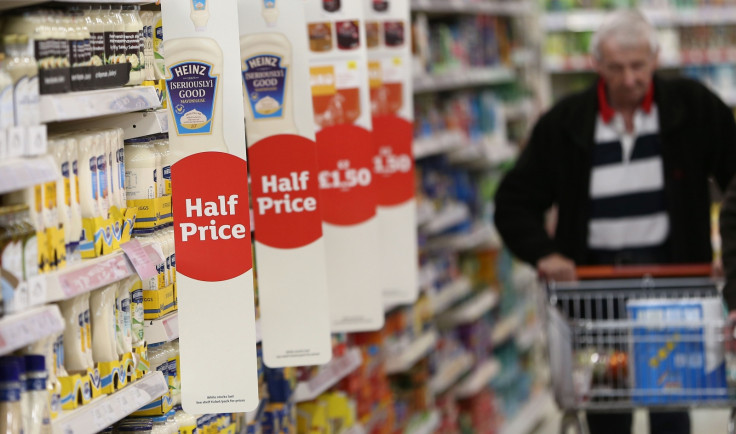Supermarket sales jump as cost of weekly shop rises
Grocery sales across the sector put in their best performance for almost four years.

Supermarket sales have jumped as rising food prices mean households have to dig deeper to afford the weekly shop.
Grocery sales leapt by 3.8% in the 12 weeks to 21 May, the sector's best performance since September 2013, according to research firm Kantar Worldpanel.
But food prices leapt by 2.9% over the period, meaning that shoppers paid an extra £27 to fill their baskets as the cost of staples such as butter, fish and tea rose.
Chris Hayward, consumer specialist at Kantar Worldpanel said: "That may not seem like much, but if inflation continues at its current rate over the course of a year that would mean an extra £119 spent on groceries per household."
He added: "Consumers are starting to feel the pinch as prices continue to rise."
In a sign that inflation is starting to affect consumers' spending habits, cheaper products and discount retailers saw the biggest rises.
Aldi and Lidl recorded their fastest growth rates since 2015, hitting a combined market share of 12% as they open large numbers of stores.
Across the sector, sales of supermarkets' cheaper own-label products were 6% higher than the same period last year, in contrast to growth of only 0.6% in branded products.
The Big Four grocers all saw growth over the period with Morrisons leading the way up by 1.9%. Tesco grew by 1.8%, Sainsbury's was 1.7% higher, while Asda lifted by 0.9%.
Falling volumes
A separate report from data body Nielsen suggested that sales growth was being driven entirely by rising prices, as the volume of goods sold fell by 2.3% over the 12 weeks to 20 May.
Mike Watkins, Nielsen's UK head of retailer and business insight, said: "The return of inflation has helped supermarket grow sales but the challenge for the summer is to sustain this by encouraging shoppers to put more items into the weekly basket."
"Two tailwinds that should help are the six weeks up to the school holidays always being a good trade-up opportunity for retailers, with seasonal, fresh and 'al fresco' dining top of mind for shoppers.
"Alongside this, rising inflation means people will be more aware of balancing household budgets, which may encourage spending more on eating at home, rather than at restaurants."
© Copyright IBTimes 2025. All rights reserved.






















